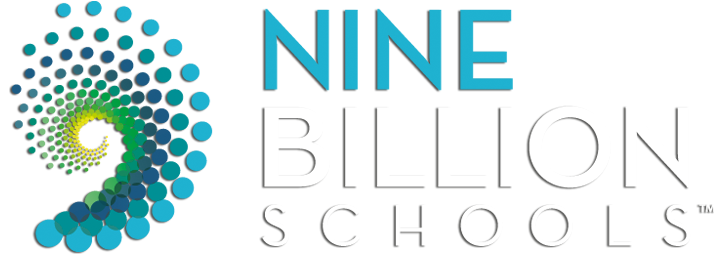SXSWedu: Thoughts on Day One
Success of the 9 Billion Schools movement hinges on its adoption by thought leaders from across the education industry. And what better place to connect with these thought leaders than at SXSWedu?! Our team is here through Thursday, learning from the best and brightest educators, researchers, social scientists, business minds, gaming gurus and more. Here are a few takeaways from Day One: March 6, 2017.
Micro Schools: The Answer to Education? (Amy Cattrell)
Over the past few years, a new model in education has emerged: micro schools. These schools are often small, employ experiential learning models and lean on technology to help deliver education that is customizable to individual student needs. Temp Keller from Blyth-Templeton Academy, Matt Candler from 4.0 Schools and Elliot Sanchez from Unlearn Education shared three examples of micro schools and why they believe they have the answer to education. In one, students have "running partners" who essentially serve as mentors – checking in with students and advising them on how much time they should spend on various subject matters throughout the day. Running partners change weekly to encourage collaboration. And these micro schools aren’t limited by the four walls of a traditional classroom; they rely on their communities and other resources to learn. Fully customizable, experiential, collaborative learning? Sign me up!
The End of School As We Know It (Shea McMahon)
Will Richardson, began his presentation, The End of School as We Know It, with an introduction to Nate Butkus – a six-year old first grader with his own, extremely popular, science exploration podcast bluntly known as “The Show About Science.” Nate explores the topics that excite him, like Tarantula Hawks, bacon and ants. Interviewing experts with the help of an admirably supportive team, Nate dives into what he truly cares about. He is given the freedom to explore his passion and, without restraint, learn at his own pace.
Richardson’s point was this: there is an entire world full of Nates out there. And, if teachers aren’t willing to mirror and echo and empower Nate’s passion, school may, in fact, be heading to an end as we know it. Imagine taking this wildly energetic and passionate learner and forcing him to care about science for 38 minutes, at which point you ask him to passionately dive into his math studies in the same way for 38 more minutes and lunch for 38 minutes, ad nauseam.
The future of education is caring that Nate loves Tarantula Hawks and finding a way for that to matter in helping him be the best version of himself. And I want to be a guest on his show.
Alternative Credentialing for Adult Lifelong Learners (Lauren Della Bella)
Yesterday was a whirlwind of learning – the very essence of 9 Billion Schools and lifelong learning! A favorite session was A Workforce Shift to Alternative Credentials, a panel presented by Jim Fong from UPCEA, Nick White from Capella University, Peter Janzow from Pearson Education and Colletta Teske, information architect and solopreneur. A key takeaway from the presentation was the disconnect between corporations and universities in terms of workforce development. The world is changing so rapidly that universities only adapt their degree program requirements quickly enough to meet the changing needs of the workplace. That’s why some major corporations, like IBM, are such strong advocates for alternative credentialing as a way to stay current with changing workplace needs. The panel also discussed the use of digital badging – programs that encourage and track the use of micro-credential badges on social media channels. As a result, these enable broader networking and build confidence among job hunters – as an important resume booster.
Educators as Innovators and Design Thinkers (Lauren Doyle)
“There’s great overlap between design and education,” says Leslie McBeth of Future Design School. She and Odin Cappello of Design & Mischief and Humber College presented Innovation Generation, a workshop to help educators utilize design thinking in their classrooms. Leslie and Odin contend that it’s essential for educators to think about how we equip learners with skills that are flexible, adaptable and help problem-solve on the fly… and that the only way to envision the future is to design it ourselves. Literally. So instead of “fail fast, fail often,” get out and create! Prototype fast, prototype often. And create the future we want, today.
Forget What You Know: The Power of Unlearning (Steve Kissing)
Unlearning old ways, tired thinking, etc. is, of course, an important part of 9 Billion Schools. What I found so interesting about this presentation from Jayne Everson, Chris Dede, Marga Biller and Peter Hutton is that it was framed around three things that create gridlock or “stuckedness” that can get in the way of learning new things:
- Mindsets (e.g., our worldview, our identity, etc.): Because this gets at how we think about ourselves and who we are as people, it can be hard to change.
- Habits: Panelists said that research suggests as much as 45 percent of what we do on a daily basis is habit-driven.
- Systems (the policies, the process, the org charts, etc.): These are hard to change because they require collective change.
In other words, unlearning is not just intellectual, it’s also emotional and social. But it is one’s “flexpertise” – their ability to use their talents in multiple ways to adapt to the world – that can allow unlearning to occur.






